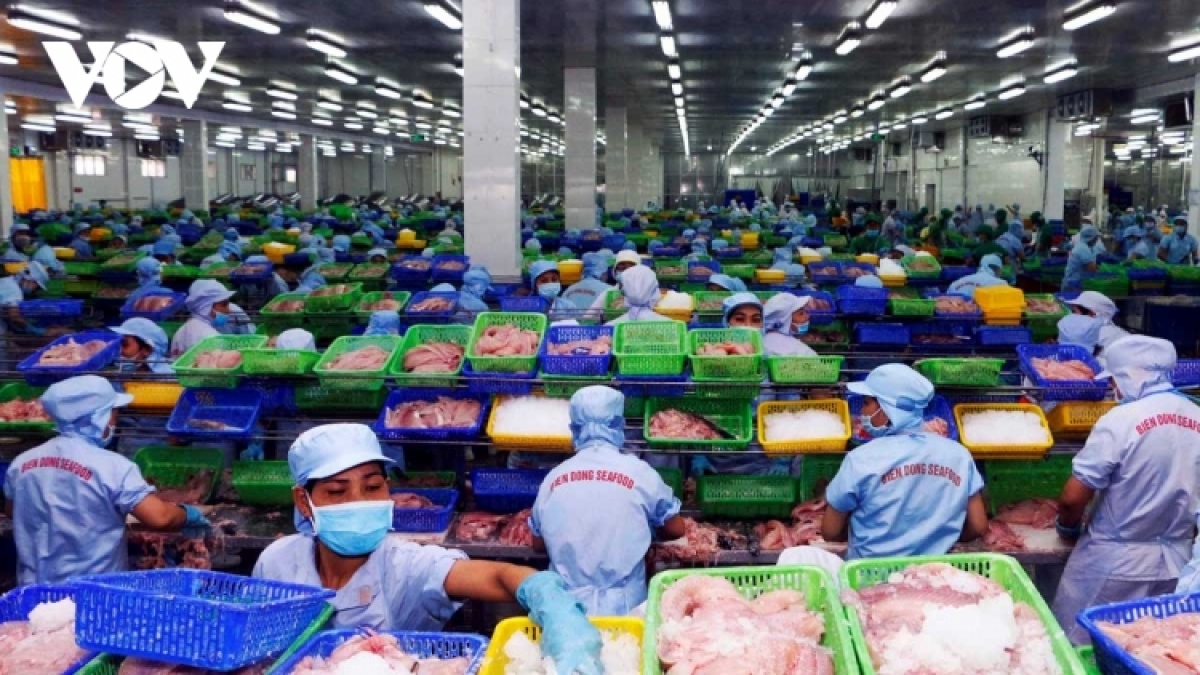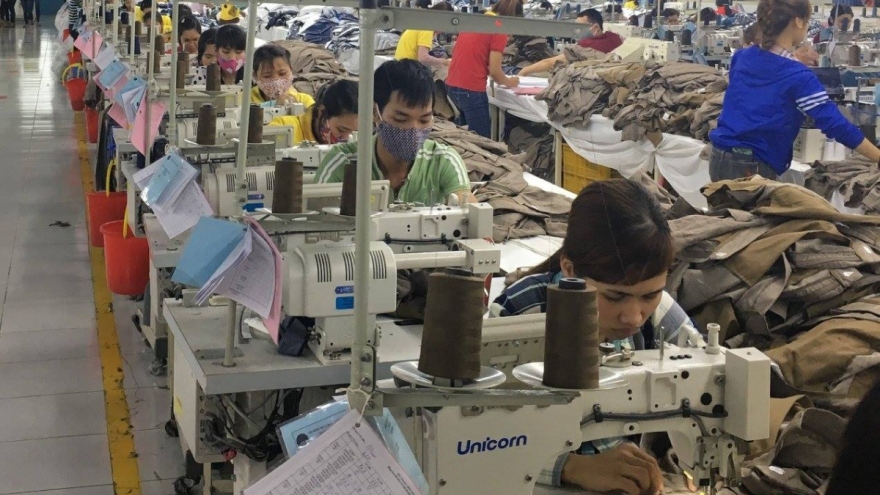Businesses advised to utilise FTAs to enhance export resilience
VOV.VN - Local businesses have been recommended to seek new markets and innovations into new products through global value chains (GVCs), whilst making use of existing free trade agreements (FTAs) to strengthen export resilience, according to the World Bank (WB)’s March Vietnam Macro Monitoring.
The report outlines that new COVID-19 cases surged during the reviewed period, reaching over 100,000 cases per day in the second half of February following the Tet holiday, causing major mobility indicators to fall.
Available data suggests the continued recovery of domestic economic activities with industrial production growing by 8.5 % annually and retail sales up 3.1 % on-year, although the effects of the recent surge in COVID-19 infections on labour supply, production, and consumption may not have been fully captured.
Furthermore, the merchandise trade balance deteriorated from a surplus of US$1.4 billion in January to a deficit of US$2.0 billion in February, with imports growing at a much faster rate than exports.
The country attracted US$2.9 billion in FDI commitments in February, a figure 15.9% lower than a year ago. The majority of the commitments were made by existing firms intent on expanding their production facilities, including two sizeable projects in real estate and electronics, each worth more than US$900 million.
The disbursement of approved FDI projects also increased by 7.9% on-year in February, a third consecutive month of increases.
Despite rising energy prices, CPI inflation remained subdued thanks to relatively stable food prices coupled with weak domestic demand.
Credit demand remained strong after the Lunar New Year period, serving to keep the overnight interbank interest rate at 2.56% at the end of February, compared to less than 1% at the end of 2021.
Elsewhere, the budget balance recorded a US$1.1 billion surplus in February as revenue performance remained strong. Indeed, expenditures increased thanks to improved disbursement of public investment.
While the economy continues to show resilience and is in the process of recovering, downside risks have heightened as cases of the Omicron variant continue to sweep the country and the Russia-Ukraine conflict has increased uncertainty about global economic recovery, thereby creating new strains on global supply chains and raising inflationary pressures.
Commodity prices have also risen sharply and may rise even further in the short term, with the continued administration of vaccine boosters and renewed health guidance being critical to manage future waves of COVID-19.
WB experts emphasised the need to keep track of domestic price developments, adding that the reduction of environmental protection tax would not be the right policy to provide relief for rising oil prices.



